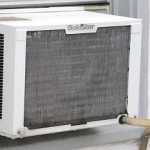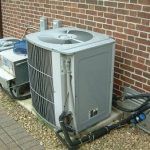
After your mortgage payment, keeping your home at a comfortable temperature is your biggest monthly expense. The HVAC system in your home can account for up to 40% of your monthly utility bills. Sadly, most homeowners are wasting a lot of that money maintaining livable temperatures in spaces where no one is spending any time. HVAC zoning allows you to control the temperature in different areas of your home, in order for you not to waste precious conditioned air in unused rooms. You control the zones with your digital thermostat, setting the temperature for each assigned area. This type of addition to your HVAC system will require the expertise of a well-known HVAC company. Designing HVAC Zones for St. Louis, MO. Area Homes There are a number of reasons why certain areas of your home may need more attention than others besides whether space is being used. For example, heat rises, so if you live in a two-story home the bottom level will always feel a few degrees cooler than the upper. The position of windows in a room can also change its needs in comparison to others. A room with a big bay window facing the east will capture the morning sunrays...
View Article

There has been growing concerns over indoor air quality in the last few years. The concern is for the indoor air quality in our homes and offices. As energy concerns have pushed homeowners to make their houses airtight, they have created an indoor environment perfectly suited for contaminants and known allergens to grow and thrive. Qualified HVAC technicians offer some much-needed advice on ways you can cut down on the pollutants that are floating around inside your own home. Clean and Dust Free Keeping your home clean and dust-free is one of the easiest ways to help cut down on respiratory irritants in the air. When your vents blow air into the room, the air will be disturbed and any build-up of dust will be added to the circulating air. The particles next pass through your ductwork and those dust particles and any contaminants they contain are now part of the indoor air you breathe. You should always try and clean with the blower fan off and make vacuuming the last step of the process. Use vacuum filter bags that are designed for allergen reduction and do not forget to use it on upholstery and window dressings. Cleaning regularly will help cut down on the particles in your...
View Article

Save money by learning how to reduce the electricity used by your window-mounted air conditioner. An air conditioner relies on electricity to perform its function. But unwanted spikes may be noticed in power consumption and costs as time goes by. If you are currently experiencing such a phenomenon, here are some useful tips on how to reduce electricity costs associated with the use of an air conditioner. Protect Your Unit You can cut down on your cooling electricity expenses by ensuring that your window-mounted air conditioning unit, especially the compressor, is shaded against harsh weather conditions. This can help reduce your power consumption by up to a tenth. You should ensure that debris is not allowed to block the airflow, as this can have a significant impact on your electricity bill. Periodically Check Your Air Conditioner’s Duct It is also helpful to ensure that the setup of your unit’s duct is as it should be. The ductwork could sometimes become leaky, especially in the cases of older properties, and fail to reach indoor areas where it is required. Duct tape should immediately be used to seal off all openings or gaps if noticed in the ductwork. This can be useful in...
View Article

You may think that the size of an air conditioner does not matter when choosing a new HVAC system for your home. There are different reasons why you need to have a correctly sized air conditioner in your home. This is why it is important for you to work with an experienced HVAC contractor when you are thinking about getting a new HVAC system for your home. Sizes of Air Conditioners When it comes to making a choice of an air conditioner, there are several sizes available in the market. You may be able to tell the size of an air conditioning unit by checking the British Thermal Unit (BTU) ratings. The lower the ratings, the lower will be the cooling power. This means that an air conditioner that comes with a low BTU rating is best suited for small spaces. Air conditioning units with higher BTU ratings will work well in providing effective cooling for larger spaces. It is important to note that home or office spaces are not the only factor for determining the correct size of an air conditioning unit to buy. HVAC experts believe that other factors that could also play a role in determining the right size of air conditioner for your home including...
View Article

A new central air conditioning unit is a major expense for a homeowner, but often a necessary one. Before jumping right in, talk with a qualified, local HVAC company to help you choose the right air conditioner for your home and to install it properly. There comes a time when you need to begin to weigh whether you want to continue paying costly repairs on an old central air conditioner or if you should have it replaced. Discuss your options with your trusted HVAC company to decide what is best for your home. If your air conditioner is an older model, the cost of a new one will pay for itself over time in the savings you will see on your electricity bill. Choosing the Correct Size For Your Home Once you decide that a new central air conditioner is right for your home, you need to have your HVAC tech do a heat gain calculation to ensure that it is the correct size for your home. Bigger is not better in this situation. You will want one that is designed to cool off the precise size of your home. When deciding on the model look only for those that have...
View Article

We spend a large part of our day indoors, so it is important that we ensure that the air inside our homes is free from all allergens. Poor internal air quality can cause several health problems ranging from skin irritation, to severe respiratory problems such as asthma. The problem is that homeowners tend to underestimate the level of pollution inside their home. The fact is that dust, pet dander, pollen, and other pollutants can adversely affect the internal air quality and lead to a lot of health problems. The First Line of Defense The air filters in your HVAC system act as the first line of defense against air pollutants, however, it may not suffice if the level of pollution is reasonably high. In such cases, it is worthwhile to invest in an air purifier to keep the pollution under check. Before we proceed to understand how an air purifier can benefit your home, it is important that we have a look at the main source of pollutants, and how bad they are for your health and well being. Sources of Air Pollution Inside Your Home You might vacuum your home daily and keep it in a sparkling clean state,...
View Article

Do you face a situation in your home where some rooms take longer than others to become cool? If you have a two-story home, then you may have faced this problem where the upper floor takes longer to get cold because the warm air from the lower floor rises up. By the time your upper floor becomes cold, the lower floor becomes too cold. This happens primarily because you are trying to cool the entire house using a single HVAC system and a single thermostat. Retrofitting ducts or a separate HVAC system can offer a good solution to the problem, but it may turn out to be quite expensive. However, there is another practical and cost-effective solution for such homes. It is known as a zoning system, where the existing HVAC system and ductwork are used to improve cooling and efficiency. The system is composed of dampers, multiple thermostats, and a control panel. You can adjust the temperature in a particular zone using the thermostat installed in that zone. So, you can regulate the temperature in a particular room without affecting the temperature in other rooms. Is a Zoning System the Right Choice For My Home? Zoning systems make good sense...
View Article

The HVAC system cannot alone help you fight the bone chilling cold of the winter. It takes more than just a good heating system to keep you warm and comfortable during the winter. You need to have proper insulation in your home to ensure that the HVAC system works efficiently and effectively. Identifying Leaks It is important that you identify all leaks and block them appropriately in a way that heat is not able to escape from your home. A professional HVAC company can do a complete check of your home and evaluate the energy efficiency and insulation of your home. However, you can also do some preliminary investigation and plug the leaks to insulate your home. You can try some of these winter insulating tips. Common Problem Areas for Leaks Start by identifying all problem areas in your house. Evaluate every room of your house for possible air leaks. The biggest problem areas would be the windows, fireplace, and attic areas. There could be some small gaps along the baseboards. Remember, even the smallest of gaps can have an adverse effect on the energy efficiency of your home. Note all problem areas on a piece of paper, so that you...
View Article
Efficiency During The Winter During harsh winters, you cannot switch off your heating system even for a few hours as the cold becomes unbearable. This means that your energy bills can spiral up significantly especially if your HVAC system is not working efficiently. However, a few simple things can help you achieve heating efficiency, and your energy bills can come down considerably. Here are some tips that will help you get the most out of your heating system without burning a hole in your pocket. The Importance of Seasonal Maintenance The importance of periodic and seasonal maintenance of the HVAC system cannot be emphasized enough. A complete tune-up before the onset of the season can make a huge difference to the energy efficiency of your system, and will provide visible results as far as power bills are concerned. Investing in a Programmable Thermostat Another crucial step to achieving energy efficiency is investing in a programmable thermostat. The programmable thermostat gives you the freedom to set the temperature a little lower during the time when the outside temperature is reasonably high. This way, you can relieve the HVAC system of some burden, help extend the life of the system, and bring...
View Article
Every year we witness sub-zero temperatures in winter. Your HVAC system may find it hard to cope with the frigid temperatures. HVAC experts feel that most HVAC systems work best when the outside temperatures are around five degrees. But when the outside temperatures drop below this level, you may start to feel that the heating system is probably not working as well. However, this is not a sign of a faulty HVAC system, but that the outside temperature is too low for the HVAC system, and you may have to take some other steps to feel more comfortable inside your home. Preparing Your Home for Sub-Zero Temperatures Here are some simple tips to help you prepare your house for sub-zero temperatures. They will help make your house warmer, and you will feel more comfortable. • To start with, you should get a complete HVAC maintenance done before the onset of winter. Proper system tune-ups will ensure that the heating system is prepared to work at its peak efficiency. You should also ask your HVAC company to clean or replace the filter if required. • During very cold weather, you must never set back the thermostat in order to save energy....
View Article








